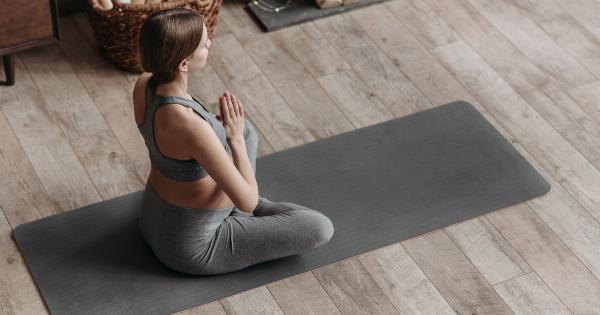Walking is a simple and effective form of exercise that can provide significant benefits for pregnant women. It is low-impact, requires no equipment, and can be easily incorporated into a daily routine.
Whether you are an avid runner or someone who is just beginning to exercise, walking during pregnancy can help you stay fit, manage weight gain, reduce discomfort, and improve overall well-being. In this article, we will explore the numerous benefits of walking during pregnancy.
1. Maintaining a Healthy Weight
Weight gain is a natural part of pregnancy, but excessive weight gain can lead to various complications. Walking regularly can help manage weight gain by burning calories and maintaining a healthy body mass index (BMI).
It is a simple yet effective way to stay physically active without putting excessive strain on your body.
2. Reducing the Risk of Gestational Diabetes
Gestational diabetes is a condition that affects pregnant women, increasing the risk of complications for both mother and baby.
Regular physical activity, such as walking, can help reduce the risk of developing gestational diabetes by improving insulin sensitivity and glucose metabolism.
3. Improving Cardiovascular Health
Walking is a cardiovascular exercise that can help strengthen your heart and improve overall cardiovascular health.
It increases blood circulation, lowers blood pressure, and reduces the risk of developing cardiovascular diseases both during and after pregnancy.
4. Easing Pregnancy Discomfort
Pregnancy brings several discomforts such as back pain, leg cramps, and swollen feet. Walking can help alleviate these discomforts by improving muscle strength and flexibility.
It also promotes better posture, which can reduce strain on the back and alleviate back pain.
5. Boosting Mood and Mental Well-being
Physical activity, including walking, releases endorphins, also known as the “feel-good” hormones. These endorphins can help boost mood, reduce stress, and improve mental well-being during pregnancy.
Walking outdoors can also provide exposure to natural sunlight, which is beneficial for mental health.
6. Promoting Better Sleep
Sleep disturbances are common during pregnancy due to hormonal changes, discomfort, and anxiety. Walking can contribute to better sleep by reducing stress, increasing physical fatigue, and promoting relaxation.
It is important to engage in physical activity earlier in the day to avoid stimulating the body and mind right before sleep.
7. Preparing for Labor and Delivery
Walking is considered a safe and gentle exercise that can help prepare your body for labor and delivery. It strengthens the muscles needed for childbirth, including the pelvic floor muscles.
In addition, walking regularly can help improve endurance and stamina, which are essential during labor.
8. Building Stronger Bones and Muscles
Pregnancy places additional strain on the bones and muscles, particularly in the back and pelvis.
Walking is a weight-bearing exercise that can help build stronger bones and muscles, reducing the risk of conditions such as osteoporosis and improving overall strength and stability.
9. Connecting with Nature
Walking outdoors provides an opportunity to connect with nature, which can have a positive impact on mental health and overall well-being.
It allows you to enjoy fresh air, observe the beauty of nature, and reduce stress levels, all of which can contribute to a healthier and more peaceful pregnancy experience.
10. Social Interaction
Walking can also be a social activity, providing an opportunity to connect with friends, family, or other expectant mothers.
Joining a prenatal walking group or simply walking with a companion can enhance your motivation and make the exercise more enjoyable.
Overall, walking during pregnancy is an excellent way to stay active and reap numerous physical and mental benefits.
However, it is important to consult with your healthcare provider before starting or continuing any exercise routine to ensure it is safe for you and your baby.

























